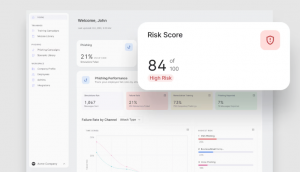Mobile Browsing Trends: Opera Mini Reemerges as a Top Tool
![]() Despite the iPad producing the most activity across mobile devices, according to a recent report from Chitika, don’t count out RIM just yet, at least not as far as mobile browsing goes. They’re seemingly rising from the dead as BlackBerry Opera Mini browser bested iOS counterparts in speed tests based from the recent New Relic study. Blackberry Opera Mini 6.5 tipped the scale with a 2.6 seconds loading time to snatch a convincing win in mobile browsing from the likes of the iPhone Safari series, iPad Safari 5.0, Android and Symbian Opera Mobile. This could be redeeming news for a badly bruised mobile brand that has experienced massive outages and leadership fallouts over the last couple of months.
Despite the iPad producing the most activity across mobile devices, according to a recent report from Chitika, don’t count out RIM just yet, at least not as far as mobile browsing goes. They’re seemingly rising from the dead as BlackBerry Opera Mini browser bested iOS counterparts in speed tests based from the recent New Relic study. Blackberry Opera Mini 6.5 tipped the scale with a 2.6 seconds loading time to snatch a convincing win in mobile browsing from the likes of the iPhone Safari series, iPad Safari 5.0, Android and Symbian Opera Mobile. This could be redeeming news for a badly bruised mobile brand that has experienced massive outages and leadership fallouts over the last couple of months.
The New Relic examined browser performance at the rate of roughly 690,000 page views per minute.
But why are mobile browsers gaining attention nowadays? Mobile web browsing is the new way of exploring the online world. This is a byproduct of the explosion of smartphones and tablets that has led us straight to the era of mobility. With an emphasis on the speed of mobile browsing, here are some tips and tools to help you spot a good mobile browser.
From The Experts
![]() The result of the New Relic report may be somewhat disappointing to some users. President and COO of the all-in-one web application performance management provider for the cloud, Chris Cook demonstrates how the speed tests depict the disparity in users’ expectations and browsers’ delivery.
The result of the New Relic report may be somewhat disappointing to some users. President and COO of the all-in-one web application performance management provider for the cloud, Chris Cook demonstrates how the speed tests depict the disparity in users’ expectations and browsers’ delivery.
“Despite significant advances in browser technology, most users still have a sub-par web browsing experience,” Cook says. “We found that the average page load time was still more than five seconds. Most people sense a delay on a web page after the blink of an eye. Waiting five seconds is still too long for any user.”
If this is the prerequisite for a passing grade, then Blackberry Opera Mini 6.5 is the only mobile browser that makes it through the pack. But this does not necessarily mean you’ll give up the iPhone or Android phone for Blackberry? I don’t think so. There’s still lots of work cut out for the Canadian mobile giant as they piece together their brand after a year of torment.
For Android users like me, the Chrome version paints a smile on my face. International Business Times’ Prarthito Maity thinks that its tab management, tidy appearance and minimalistic approach makes it the one of the best browsers of the platform this year.
Maity noted in his article the advantages and challenges of Chrome for Android: “The Android version of Chrome is one of the smoothest browsers with a great speed and displaying only that which is absolutely required. However, Chrome doesn’t have Flash integration and hence regardless of the fact that your device is Flash enabled or not, nothing will adapt to Chrome. Some sites often send a link to a mobile version of a website sometimes, but Chrome lacks in a toggle to request desktop sites.”
In a blog posted in time for the Chrome for Android launch, Sundar Pichai, SVP of Chrome and Apps said, “one of the biggest pains of mobile browsing is selecting the correct link out of several on a small-screen device. Link Preview does away with hunting and pecking for links on a web page by automatically zooming in on links to make selecting the precise one easier.
“And as with Chrome on desktop, we built Chrome for Android with privacy in mind from the beginning, including incognito mode for private browsing and fine-grained privacy options (tap menu icon, ‘Settings,’ and then ‘Privacy’).”
We also have to remember that Adobe has already acknowledged the unprecedented growth of HTML5 in the mobile space. As a result, the latter part of 2011 was monumental for the company as they withdrew Flash Player software support from mobile web browsers. A parcel of the official statement that Adobe released in November reads,
“However, HTML5 is now universally supported on major mobile devices, in some cases exclusively. This makes HTML5 the best solution for creating and deploying content in the browser across mobile platforms. We are excited about this, and will continue our work with key players in the HTML community, including Google, Apple, Microsoft and RIM, to drive HTML5 innovation they can use to advance their mobile browsers.”
“Our future work with Flash on mobile devices will be focused on enabling Flash developers to package native apps with Adobe AIR for all the major app stores. We will no longer continue to develop Flash Player in the browser to work with new mobile device configurations (chipset, browser, OS version, etc.) following the upcoming release of Flash Player 11.1 for Android and BlackBerry PlayBook. We will of course continue to provide critical bug fixes and security updates for existing device configurations. We will also allow our source code licensees to continue working on and release their own implementations.”
Market Integration
![]() The boom of mobile social networking has created a string of ever-evolving demands from users. Even mobile browsing technologies realize the need to upgrade.
The boom of mobile social networking has created a string of ever-evolving demands from users. Even mobile browsing technologies realize the need to upgrade.
Mobile retail
I have the tendency to close a website tab if it takes more than 10 seconds to load. I could say that I am a bit patient compared to other users who are known to leave the site if they’re forced to wait longer than 5 seconds (as mentioned above). The rise of couch- and on-the-go shoppers has made location-based mobile retail extremely popular, especially over the past few holidays. Mobile browsing technologies have incorporated easy access to online shopping and retail stores like eBay and Amazon. Opera Mini has also been keen on incorporating more mobile payments options for easy retail integration.
Social enterprise
Professionals on-the-go would love the idea of being able to perform a variety of document editing, sharing and collaborating with handy devices such as smartphones and tablets. Chrome for Android allows online collaboration through Google Docs, even when you and your colleagues are out of the office. Mobile browsers also feature bookmarks that are heavily linked with social media sites and note-taking, productivity portals like Evernote.
Secure browsing
The moment mobile browsing stepped into the spotlight is the time that security breaches hacks began their ascent. Safeguarding mobile, which is believed to have the most personal and sensitive information oftentimes, becomes a very crucial element to browsers. Last year Android became a favorite breeding ground of hacking and malware activities, exposing loads of confidential data at the expense of end users. The vulnerability of mobile devices is even more exposed with browser upgrades. Opera Mini has made an encrypted connection between mobile devices and proxy servers for security and privacy sake.
Tools
Mobile browsing is something inexplicably tied to the brand of the mobile device itself. If you are using Apple, Safari is the ultimate recommended browser. The birth of Google Chrome for Android seems like an inevitable move since they are sister companies. Just recently, Chrome introduced the accessibility of all your tabs in multi-channel environment, enabling browser tabs to travel from device to device. Chrome for Android (in Beta) now carries its user interface in 31 additional languages and is available in all countries, with access to Google Play. Internet Explorer for mobile was developed based on Trident layout engines for Windows Phones.
But perhaps Opera Mini’s browsers have become the most versatile of all, with availability on iOS, Android and other mobile OS’s. Opera Mini features a search bar capable of using several pre-defined search engines, shortcut keys, bookmarks, skins and a web feed generator. Recently Opera Mini found itself fighting to regain leadership in terms of market share for Android devices when Google’s OS momentarily claimed the kingship with Chrome for Android. And Opera’s also developed a new edition for Symbian devices as well. It seems like Opera Mini is serious in taking the battle to the next round as they introduced an ad-tracking app to the market, the App-Tribute.
Firefox, too, is reportedly gearing up for Windows Phone 8 and is taking some pointers from its rival, Google Chrome.
A message from John Furrier, co-founder of SiliconANGLE:
Your vote of support is important to us and it helps us keep the content FREE.
One click below supports our mission to provide free, deep, and relevant content.
Join our community on YouTube
Join the community that includes more than 15,000 #CubeAlumni experts, including Amazon.com CEO Andy Jassy, Dell Technologies founder and CEO Michael Dell, Intel CEO Pat Gelsinger, and many more luminaries and experts.
THANK YOU













